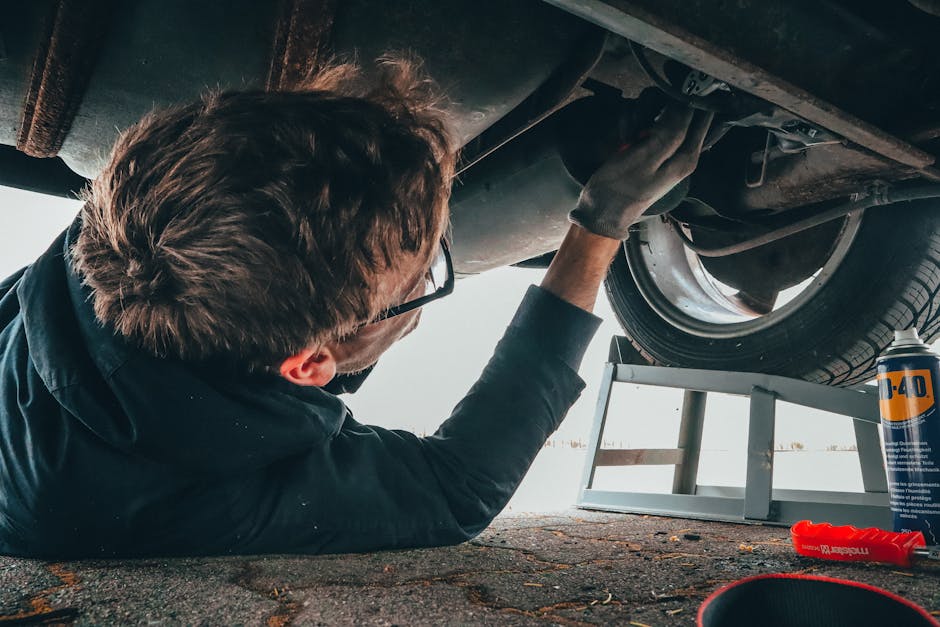Accidents are an unfortunate part of life on the road, and understanding the process of filing a car accident claim is an essential skill for every driver. Before delving into the specifics of how these claims work, let’s establish a fundamental understanding of what car accident claims are.
Essentially, a claim is a formal request made by the policyholder to their insurance company for compensation or coverage for damages incurred in a car accident. But how is this procedure initiated? What should you expect when you start the process?
In this blog post, we will walk you through all stages of the car accident claims process, in easy to understand terms. Equipped with this knowledge, you’ll be prepared to confidently navigate any car accident scenario.
Steps to Take Immediately After Accidents

In the immediate aftermath of an accident, your actions can have significant implications on a potential claim.
Firstly, ensure safety for all parties involved. Move to a safe location if possible and call emergency services.
Next, documentation is crucial. Capture as many details as possible about the accident. Take pictures of the scene, note down the time and weather conditions and gather information from the other party – insurance details, contact information, vehicle details, etc.
Another critical step is to contact your insurance company immediately to report the incident. Provide them with thorough and accurate information.
Lastly, seek medical attention, even if no injuries are apparent. Some injuries may manifest later, and having medical records can strengthen your claim.
Remember, keeping a cool head and following these steps will help protect your rights and maximize your possible compensation.
The Importance of Reporting the Accident

Reporting a car accident is a critical first step in the claim process. Not only is it legally required in most jurisdictions, it also helps establish a record of the incident.
When you report an accident, you’re communicating the initial facts. This can later assist insurance companies and legal teams in determining fault and liability.
Moreover, prompt reporting can expedite your claim, getting you back on the road faster.
Remember – your report doesn’t speculate on who’s to blame. It’s a simple, factual account of what happened.
Ignoring this step could complicate your claim, delay payouts, or even result in legal consequences.
So, report as soon as possible. It’s vital for a smooth, fair claims process.
Deciphering Auto Insurance Policies

Decoding the fine print in auto insurance policies is integral to understanding how car accident claims work.
Each policy generally includes six main sections: Liability coverage for bodily injury, liability coverage for property damage, uninsured/uninsured motorist coverage, comprehensive coverage, collision coverage, and medical payments/personal injury protection.
Unwrapping each section provides a clear picture of your protection levels. For instance, liability coverage pertains to damage you cause to others while uninsured motorist coverage protects you from the negligence of others.
Distinguishing between comprehensive and collision coverage is crucial too. Comprehensive provides protection from non-collision related incidents, whereas collision covers damages from auto accidents.
Understanding these fundamental policy sections demystifies the car accident claim processes. Knowledge is power, and in the context of auto insurance, this could mean more efficient claims and potential savings.
Determining Liability in Car Accidents

In the aftermath of a car accident, establishing who is at fault forms the basis of any insurance claim or legal action. This process, known as determining liability, is crucial in uncovering who bears the financial responsibility for the crash.
Liability is often determined by laws in place in the state where the accident occurred. Typically, it stems from negligence, where it must be proven that a motorist failed to exercise reasonable care owed to others on the road.
Witness statements, traffic law violations, police reports, and accident scene evidence like skid marks or property damage can offer solid insights into liability. But sometimes, it’s not so straightforward. In such instances, accident reconstruction experts or forensic investigators may be needed to decipher the events leading to the crash.
Remember, understanding liability is the core pillar to claiming insurance or seeking redress after an accident.
Role of Car Accident Claims

Car accident claims play a pivotal role in compensating victims for any losses or injuries incurred during the incident. Whenever a car accident happens, it’s the claim process that initiates the financial recovery.
Whether it’s vehicle damage, medical expenses, or wage loss due to injury, these claims seek to cover them all. They either involve your insurance company or that of the at-fault party. Going beyond mere paperwork, processing claims often require thorough assessments and negotiations.
Moreover, they aim to ensure that victims are justly compensated and that accountability is placed where it belongs, laying the groundwork for justice to be served. Therefore, understanding the intricacies of car accident claims can be instrumental in helping victims navigate through the legal and insurance landscapes following an accident.
Procedure of Filing Car Accident Claims

Submitting a car accident claim can seem overwhelming, but understanding the procedure can greatly help ease the process. First, it’s crucial to report the accident to the police immediately.
Next, document everything. Capture photos, record conversations, and jot down specific details regarding the accident.
Then, contact your insurance company. Report the accident and provide them with all the necessary details and documents they might need. They’ll review your claim based on the details provided.
Alternatively, if you’re planning to claim from the other party’s insurance company, get their details at the scene and report the incident to their insurer. Be sure to provide them with the necessary documentation.
Lastly, a claim adjuster will inspect the damages to ascertain the compensation. This process might take some time, so patience is key. Remember, you have the right to appeal if you disagree with the settlement proposed by the insurance company.
Dealing with Insurance Adjusters

Dealing with insurance adjusters can be a complex task.
Upon notification of an accident, your insurance company will assign an adjuster to your case. The adjuster’s job is to investigate the accident details, assess the damage, and determine who is at fault.
It’s important to know that insurance adjusters are not your allies. They work for the insurance company, and their primary goal is to minimize the payout.
Make sure to document everything including medical bills, repairs, lost wages, etc. Keep your statements to the adjuster factual and concise; avoid providing unnecessary details or opinions.
Remember, you don’t have to accept the first offer they present. You have the right to negotiate if you believe their assessment is incorrect.
In challenging cases, consider consulting a car accident attorney to ensure a fair settlement.
Understanding how to deal with insurance adjusters can expedite your car accident claim process and lead to a more satisfactory outcome.
Unveiling The Settlement Process

Diving into the settlement process of car accident claims, it starts with the victim filing a claim against the responsible party’s insurance company.
Following this initial step, both sides enter into negotiations, aiming to agree on the amount of compensation due to cover medical bills, car repairs, and other splendid damages.
Documents such as medical records, car repair bills, photos of the accident, witnesses statements, and the police report are critical in these discussions. They determine the legitimacy and value of the claim.
However, the process can get complicated, making legal representation crucial for victims.
In case negotiations fail, the case escalates to court for a trial by jury. It’s during this stage that typically, the settlement amount becomes final.

